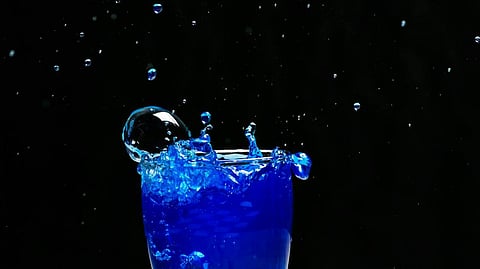

HYDERABAD: In the midst of our busy daily lives, we often turn to instant food and drinks to quickly meet our body’s needs. Unfortunately, this convenience may come at a cost to our health, as certain instant products can slowly harm our bodies. One such widely consumed item is energy drinks, and a recent study published in the BMJ open journal has highlighted a concerning link between even small amounts of energy drink consumption and sleep disturbances among college students.
“The Norwegian study reveals a worrisome connection between energy drink consumption and sleep issues among college students. While this correlation is noteworthy, it’s crucial to approach these findings with caution. Sleep problems are complex and can be influenced by various factors, including lifestyle, stress, and irregular sleep patterns. Establishing a clear causative link requires further research,” cautioned Dr Hari Kishan, Senior General Physician at Kamineni Hospitals.
Dr Kishan emphasised the purpose of energy drinks, stating, “Energy drinks are formulated to provide a quick boost in physical and mental alertness. The main active ingredient, caffeine, stimulates the central nervous system, reducing the perception of fatigue and increasing wakefulness. Other components like taurine and B-vitamins are included for potential synergistic effects. While energy drinks can temporarily enhance energy levels, their safety and effectiveness depend on individual factors. Factors such as caffeine sensitivity, overall health, and underlying conditions can influence the response to these beverages. Overconsumption may lead to adverse effects, including increased heart rate and, as suggested by the study, sleep disturbances.”
Clinical Dietitian G Sushma from CARE Hospitals explained the connection between energy drinks and insomnia. She pointed out that these drinks often contain high levels of caffeine and other stimulants, which can heighten alertness and decrease feelings of fatigue. However, consuming energy drinks excessively, especially in the evening or close to bedtime, can disrupt sleep patterns and contribute to insomnia. Caffeine’s stimulating effects can interfere with the natural sleep-wake cycle, making it challenging for individuals to fall asleep or stay asleep.
Sushma also highlighted various side effects of energy drinks, such as increased heart rate, elevated blood pressure, jitteriness, anxiety, and digestive issues. The high sugar content in many energy drinks may contribute to weight gain and dental problems, while excessive consumption could lead to dehydration and, in rare cases, more severe issues like heart palpitations or cardiovascular events.
“It’s essential to acknowledge that individuals may respond differently to various energy-boosting strategies. What benefits one person may not work for another. Striking a balance that aligns with your lifestyle, considering factors like sleep patterns and overall health, is crucial for maintaining sustained energy levels without resorting to potentially harmful energy drinks. If consuming energy drinks, moderation and awareness of their potential impact on sleep are vital,” concluded Dr Hari Kishan.
Alternative to energy drinks
Water and Herbal teas: Staying hydrated is fundamental for maintaining energy levels. Opt for water, herbal teas, or infused water for a refreshing and non-caffeinated choice.
Nutrient-rich snacks: Consume snacks that combine complex carbohydrates, healthy fats, and proteins. Nuts, yogurt with fruits, or whole-grain crackers with cheese provide a balanced energy boost.
Natural fruit juices: Freshly squeezed fruit juices can be a source of natural sugars and vitamins, offering a healthier alternative to energy drinks.
Smoothies: Blend fruits, vegetables, yogurt, and a touch of honey for a nutrient-dense smoothie that provides energy without the adverse effects of excessive caffeine.
Regular exercise: Engage in physical activity to naturally